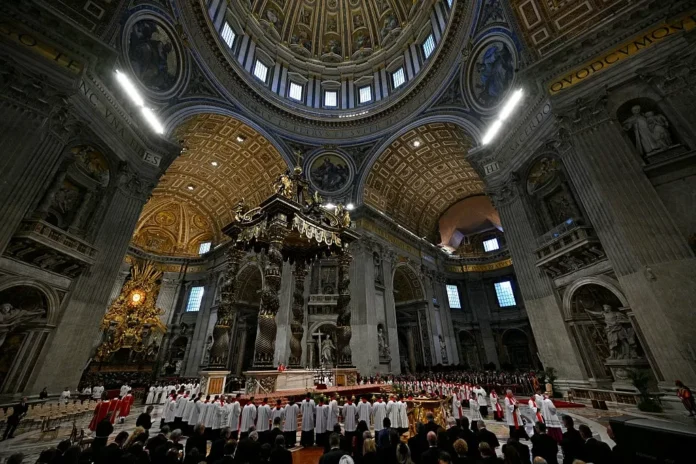Easter is a holiday celebrated by millions of people around the world, marking the resurrection of Jesus Christ and the arrival of spring. While most people are familiar with the traditional customs associated with Easter, such as decorating eggs and hunting for chocolate treats, many may not know the history behind why Easter falls on a Sunday.
The celebration of Easter is deeply rooted in the Christian faith, and the date of the holiday is determined by a complex calculation based on the lunar calendar. This calculation ensures that Easter falls on a Sunday, and it is a tradition that has been followed for centuries.
To understand why Easter falls on a Sunday, we must take a trip back in time to the early days of Christianity. In the first century A.D., the followers of Jesus began to gather and celebrate his resurrection. At this time, there was no specific date assigned to the celebration, and it was observed on different days of the week.
It was not until the Council of Nicaea in 325 A.D. that the date for Easter was officially established. At this council, church leaders decided that Easter should be celebrated on the Sunday following the first full moon after the vernal equinox, which marks the beginning of spring in the northern hemisphere.
The decision to have Easter on a Sunday was significant as it aligned with the Christian belief in the resurrection of Jesus, which occurred on a Sunday according to the Bible. It also tied in with the Jewish Passover, the annual celebration of the Israelites’ freedom from slavery in Egypt, which traditionally falls on the 15th day of the Hebrew month Nisan. The date of Passover is also determined by the lunar calendar, making it easier for Christians to plan their Easter celebrations accordingly.
However, the establishment of the date for Easter was not a smooth process. In the years that followed, there were disagreements among various Christian groups about how to calculate the date. This led to variations in the observance of Easter, with some communities celebrating it on different days.
In the 16th century, the Roman Catholic Church recalculated the date and established a set system to determine Easter’s date, known as the Gregorian calendar. This calendar was adopted by most of the Catholic countries, and it is still in use today.
In the 20th century, the World Council of Churches proposed a revised method to calculate the date of Easter, known as the Revised Julian Calendar. This method is used by the Eastern Orthodox Church and differs from the Gregorian Calendar, which is used by the Western Church.
Despite the variations in how Easter is calculated, the date is still determined with reference to the vernal equinox and the first full moon after it, ensuring that it falls on a Sunday.
Easter’s moveable date is significant as it allows Christians to observe the holiday on a different date each year, adding a unique aspect to the celebrations. It also ties in with the Christian belief in the unpredictability of Jesus’ return, as stated in the Bible’s New Testament.
Additionally, by falling on a Sunday, Easter is given a special significance in Christianity. Sunday is considered a holy day for Christians since it is the day of Jesus’ resurrection and marks the beginning of a new week. Therefore, by having Easter on a Sunday, the holiday is given even more significance in the Christian faith.
In conclusion, the history behind why Easter falls on a Sunday is rooted in the early days of Christianity and has evolved over the centuries. It is a result of the efforts of the church leaders to establish a set date for the holiday that aligns with the Christian belief in the resurrection of Jesus and the Jewish Passover. The moveable date for Easter adds a special element to the celebrations and highlights the Christian belief in Jesus’ return. So, as we gather with our loved ones to celebrate Easter this year, let us also take a moment to appreciate the history and significance behind the date of this joyous holiday.

